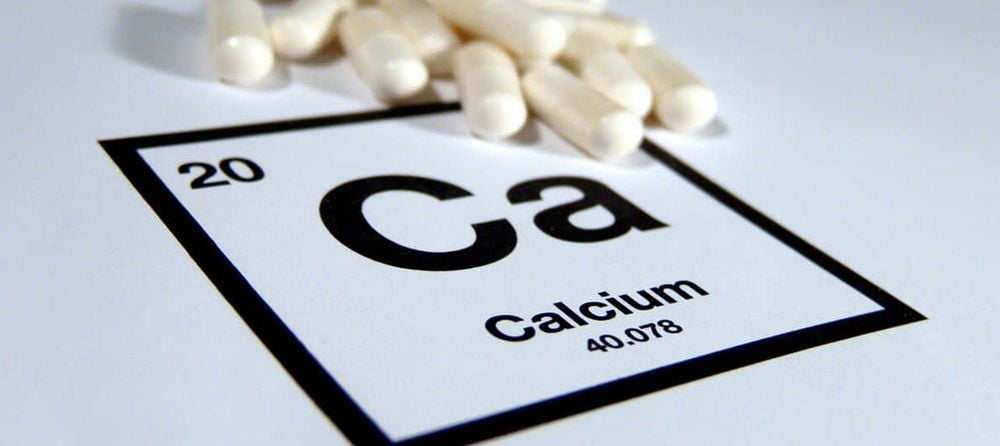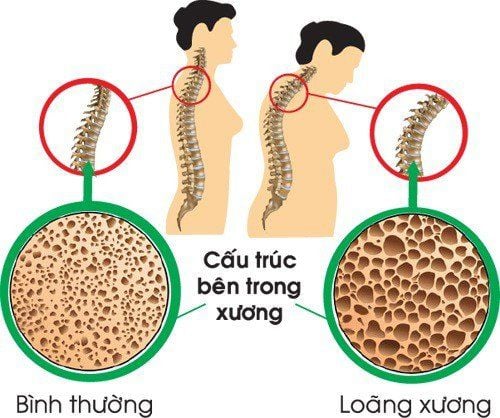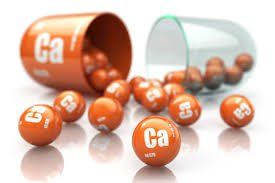This is an automatically translated article.
Blood calcium test is a common method applied to patients with symptoms of hypocalcemia or hypercalcemia. In many cases, this test is included as part of a routine blood test that helps diagnose and detect many important medical conditions.
1. Overview of calcium
Calcium is an essential mineral of the body that plays an important role in many body activities such as participating in muscle contraction, nerve transmission, releasing hormones into the blood. The amount of calcium stored in the body is maintained stable depends on 3 main factors:
Food and water intake Absorption of calcium from the intestine Calcium excretion through urine and digestive tract. Calcium from food is put into the body, under the influence of some endocrine factors (especially vitamin D) to help calcium circulate in the blood, then store most of it in bones, a small part in the body. and participate in muscle and cardiovascular activities...
In the blood, calcium is expressed in 2 forms:
Inactive form, bound to proteins (mainly albumin): accounts for 50% of calcium stored act in the blood. The free form (Ca2+ ions) is not bound to proteins, accounting for nearly half of the blood calcium. The amount of calcium in the blood is the sum of free and inactive calcium. All changes in serum protein levels will affect serum calcium levels, but only changes in ionized calcium concentrations will cause real clinical signs. Ca2+ plays an important role in muscle contraction, nerve impulse conduction, heart function, and hemostasis of the body.

Canxi có vai trò quan trọng với hoạt động cơ thể con người
2. What is the blood calcium test for?
Blood calcium test is a method used to evaluate the total amount of calcium in the blood of a patient. Calcium plays an important role in many bodily functions, so in many cases you need to perform a blood calcium test to evaluate the increase or decrease of calcium in the body, thereby giving appropriate health indications. fit.
In addition, blood calcium test is also indicated to diagnose malignancies because cancer cells often release calcium, causing a sudden increase in blood calcium levels.
3. Benefits of blood calcium test
From the results of the blood calcium test, the doctor can evaluate the function of the parathyroid glands and the body's metabolism of calcium and phosphorus. So here it is:
Tests are indispensable in the treatment of:
Muscle cramps, cramps, paresthesias Coma of unknown origin. Vomiting is not explained. The test is also said to be helpful in monitoring the condition of patients:
Renal failure, hyperparathyroidism, kidney transplant Acute pancreatitis Having bone metastases Patient is being treated with anti-inflammatory drugs Digitalis, the anti-osteoporosis drug Calcitonin or a diuretic.

Xét nghiệm canxi máu giúp theo dõi tình trạng loãng xương
4. Blood calcium test procedure
Preparation: Before performing a blood calcium test, the doctor may ask the patient to stop taking some foods or drugs such as: Lithium, Diuretics, vitamin D supplements, Calcium, antacids with contains calcium... to avoid affecting test results.
Conduct: The process of performing a blood calcium test is quite simple.
Step 1: Wrap a bandage around your hand to stop the blood circulation;
Step 2: Disinfect the injection site with alcohol
Step 3: The medical staff injects a needle into the vein in the arm, performing the necessary blood draw.
Step 4: Remove the bandage around the hand after collecting enough blood, apply gauze or cotton ball to the injection site.
Step 5: Stick a bandage on the injection site.
The blood draw usually takes less than 5 minutes, the person performing the test may feel a slight pain when the needle is inserted into the arm but it should not be noticeable. The collected blood will be stored in test tubes and sent for testing.

Lấy mẫu máu xét nghiệm canxi
5. Meaning of blood calcium test results
5.1. Normal values The normal reference range for an adult blood calcium test is about 8.6 - 10.2 mg/dL 4.2 - 5.3 mEq/L or 2.1 - 2.6 mmol/L. This reference criterion may vary slightly between laboratories. Based on this index, it is possible to compare and classify the patient's condition as hypercalcemia or hypocalcemia.
5.2. Elevated blood calcium levels (Hypercalcemia) When blood calcium quantification tests show calcium levels above the reference range, it is known as hypercalcemia.
Hypercalcemia, caused by any cause, can be completely asymptomatic, or present with vague symptoms such as: confusion, fatigue, loss of appetite, nausea, abdominal pain, constipation , bone pain, renal tubular damage, cardiac arrhythmia, frequent thirst, increased urination... These clinical conditions are easy to confuse with other diseases. Only a blood calcium test can help detect this condition.
5.3. Hypocalcemia (hypocalcemia) When a blood calcium level test shows a calcium level below the reference range, it is called hypocalcemia. Usually, hypocalcemia occurs when too much calcium is lost in the urine or when there is not enough calcium being transferred from the bones into the bloodstream. Symptoms of low calcium levels in the body include:
Heart rhythm disturbances, blood pressure changes Feeling of numbness in the lips, tongue, fingertips, toes Muscle contractions all over the body: cramps, twitching limbs Numbness, muscle pain Feeling of suffocation, shortness of breath Depression, irritability, stress To register for examination and treatment at Vinmec International General Hospital, you can contact Vinmec Health System nationwide. , or register online HERE
Recommended video:
Periodic health check at Vinmec: Protect yourself before it's too late!
SEE MORE
What to do when hypocalcaemia? What is the body's need for calcium? How does the body metabolize calcium?













